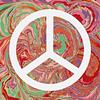Take a photo of a barcode or cover
”You are a hypocrite, over and over… you are not responsible for solving this unreconciled contradiction.”
Moderate: Child abuse, Rape
Minor: Addiction, Adult/minor relationship, Alcoholism, Child abuse, Domestic abuse, Drug abuse, Infidelity, Physical abuse, Rape, Sexual assault, Abortion, Abandonment, Alcohol
Can we separate a monstrous person from their art?
Or does the monstrousness permanently “stain” the art?
Do our individual actions even make a dent in the problem of monstrous behavior?
How do we define monstrous behavior?
And how to cope when you still love the work of a monster or even the monster themselves.
The author meandered, and at a times it was quite a slog to get to the point.
She went off on tangents that could easily have been the subject for a different book.
In looking for monsters, I feel she made a false equivalency regarding mothers who give their children up for adoption or people who commit suicide and Pablo Picasso putting out his cigarette on a woman’s face.
The book could have been half the length that it is.
I agree with the author that our individual choices regarding watching a monster’s film, looking at a monster’s art, or reading monster’s book are unlikely to make any difference one way or another. So it’s up to us to decide how we feel, and what to do about it.
Interestingly, I find that in some cases, I am less vehement about consuming the work if the artist dead and not around to continue his (and yes, they are usually males) reign of terror. I have no issue supporting the estate. I imagine the monster’s heirs had to put up with a lot of meanness.
All of that said, I would never presume to tell anyone else how to feel or what they should do in regard to this issue. This is an important issue that bears discussion, and I do thank the author for wading into the topic.
Moderate: Emotional abuse, Misogyny, Physical abuse, Rape, Excrement
Graphic: Alcoholism, Child abuse, Domestic abuse, Misogyny, Rape, Sexual assault
Graphic: Child abuse, Rape
Minor: Child abuse, Rape, Murder
Graphic: Rape, Sexual assault
Graphic: Adult/minor relationship, Alcoholism, Pedophilia, Rape
Moderate: Child abuse, Domestic abuse
Minor: Antisemitism
Graphic: Addiction, Adult/minor relationship, Alcoholism, Gun violence, Mental illness, Misogyny, Rape, Sexism, Pregnancy, Pandemic/Epidemic
Moderate: Drug use, Emotional abuse
Minor: Death of parent
Moderate: Adult/minor relationship, Alcoholism, Domestic abuse, Misogyny, Rape, Sexual assault, Violence
Minor: Transphobia





